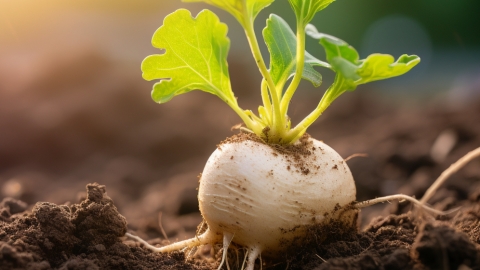Can patients with gallstones eat radishes?
Generally, patients with gallstones can eat radishes, but only in moderation. Detailed explanations are as follows:

Radishes have a high water content, which helps hydrate the body. They are also rich in dietary fiber, promoting intestinal peristalsis and aiding digestion by reducing the time food remains in the intestines. This helps prevent excessive fat accumulation and reduces the digestive burden on the gallbladder. Additionally, radishes are low in calories, placing minimal metabolic strain on the body and not stimulating gallbladder contractions that could cause discomfort. Eating radishes in moderation can support normal digestive function.
Before consumption, radishes should be thoroughly washed to remove surface dirt and impurities. It is recommended to cook them using light methods such as stir-frying with little oil or making soups, avoiding excessive fats and spicy seasonings. Intake should be controlled—eating too much at once may cause bloating or other gastrointestinal discomfort. If pain in the gallbladder area or other adverse reactions occur after eating radishes, consumption should be stopped immediately and medical advice sought.




